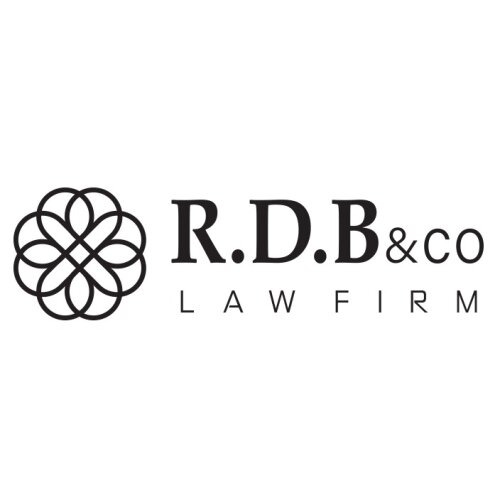Best Nonprofit & Charitable Organizations Lawyers in Petaẖ Tiqwa
Share your needs with us, get contacted by law firms.
Free. Takes 2 min.
List of the best lawyers in Petaẖ Tiqwa, Israel
About Nonprofit & Charitable Organizations Law in Petaẖ Tiqwa, Israel
Petaẖ Tiqwa, as part of Israel, supports a vibrant and active nonprofit sector. Nonprofit and charitable organizations in this area operate under specific legal frameworks that govern their establishment, management, and operations. These organizations typically focus on providing public benefits, ranging from humanitarian aid to educational and cultural activities. Israeli law provides many frameworks to ensure that these entities function properly and transparently, making legal compliance crucial for their success and sustainability.
Why You May Need a Lawyer
Establishing and managing a nonprofit or charitable organization in Petaẖ Tiqwa involves a variety of legal processes and obligations. People often seek legal advice in situations such as:
- Setting up the organization, which includes drafting comprehensive bylaws and articles of association.
- Ensuring compliance with Israeli tax regulations and applying for tax-exempt status.
- Understanding and adhering to reporting and transparency requirements.
- Navigating labor laws as they pertain to hiring employees and volunteers.
- Handling disputes or legal challenges related to charitable activities or donations.
- Assisting with mergers or collaborations with other local or international nonprofits.
Local Laws Overview
Nonprofit organizations in Petaẖ Tiqwa operate under several national and local laws, including but not limited to:
- Amutot Law: This is the primary legal framework regulating nonprofit organizations (amutot) in Israel. It outlines how these entities must register, operate, and maintain transparency.
- Tax Laws: Nonprofits must comply with specific tax regulations to maintain their tax-exempt status, including filing regular reports to the Israel Tax Authority.
- Charitable Trusts: If an organization is registered as a charitable trust, it may follow different regulations under trust laws.
- Labor Laws: These laws govern the employment aspects of nonprofits, including minimum wage, working conditions, and volunteer rights.
Frequently Asked Questions
What is the legal definition of a nonprofit organization in Israel?
A nonprofit organization in Israel, often referred to as an "amutah," is an entity established to achieve a public goal rather than distribute profits to its members. It is governed by the Amutot Law, 1980.
How do I register a nonprofit organization in Petaẖ Tiqwa?
To register a nonprofit in Petaẖ Tiqwa, you must submit an application to the Registrar of Amutot, including bylaws compliant with the Amutot Law, and payment of the registration fee.
Can a foreign entity establish a nonprofit organization in Israel?
Yes, foreign organizations can establish a nonprofit in Israel by registering as a foreign company or setting up a new amutah following Israeli law.
What are the basic compliance requirements for a nonprofit in Israel?
Nonprofits must submit annual reports, including financial statements, to the Registrar of Amutot. They must also hold an annual general meeting to address key organizational issues.
Are there specific financial reporting responsibilities for nonprofits?
Yes, nonprofits must comply with financial reporting standards as prescribed by law, which includes submitting audited financial statements to maintain transparency and accountability.
What tax benefits are available to nonprofits in Israel?
Recognized nonprofits can obtain a tax-exempt status and eligibility for certain VAT exemptions. Donors may also receive tax credits for donations made to certified public institutions.
How does the Israeli legal system ensure transparency in nonprofit activities?
Through mandatory registration, regular reporting, and audits, nonprofits are held accountable, ensuring they operate transparently and accomplish their stated missions.
Are there any special employment laws for nonprofits?
Nonprofits must adhere to the same labor laws as other sectors, including regulations on minimum wage, work hours, and volunteer management.
Can nonprofits engage in commercial activities?
Yes, provided these activities are secondary to their main purpose and any profits generated are reinvested to further their mission.
What steps should be taken if a nonprofit faces legal issues?
Seeking legal counsel from a lawyer experienced in nonprofit law is crucial. These professionals can help navigate disputes, ensure compliance, and mediate any legal challenges.
Additional Resources
For more help and information, here are some resources you can contact:
- Registrar of Amutot: Part of the Israeli Ministry of Justice, this body oversees the registration and regulation of nonprofits.
- Israeli Tax Authority: Provides guidance on tax laws pertaining to nonprofits.
- Volunteer Associations: Various local organizations offer guidance and tools for effective nonprofit management.
Next Steps
If you need legal assistance in establishing or managing a nonprofit organization in Petaẖ Tiqwa, consider taking the following steps:
- Conduct thorough research to understand your specific needs and legal requirements.
- Consult with an attorney or legal advisor specializing in nonprofit law to gain tailored advice.
- Prepare all necessary documentation and ensure your organizational practices align with local regulations.
- Regularly review changes in the law to ensure ongoing compliance and integrity of your nonprofit operations.
Lawzana helps you find the best lawyers and law firms in Petaẖ Tiqwa through a curated and pre-screened list of qualified legal professionals. Our platform offers rankings and detailed profiles of attorneys and law firms, allowing you to compare based on practice areas, including Nonprofit & Charitable Organizations, experience, and client feedback.
Each profile includes a description of the firm's areas of practice, client reviews, team members and partners, year of establishment, spoken languages, office locations, contact information, social media presence, and any published articles or resources. Most firms on our platform speak English and are experienced in both local and international legal matters.
Get a quote from top-rated law firms in Petaẖ Tiqwa, Israel — quickly, securely, and without unnecessary hassle.
Disclaimer:
The information provided on this page is for general informational purposes only and does not constitute legal advice. While we strive to ensure the accuracy and relevance of the content, legal information may change over time, and interpretations of the law can vary. You should always consult with a qualified legal professional for advice specific to your situation.
We disclaim all liability for actions taken or not taken based on the content of this page. If you believe any information is incorrect or outdated, please contact us, and we will review and update it where appropriate.









